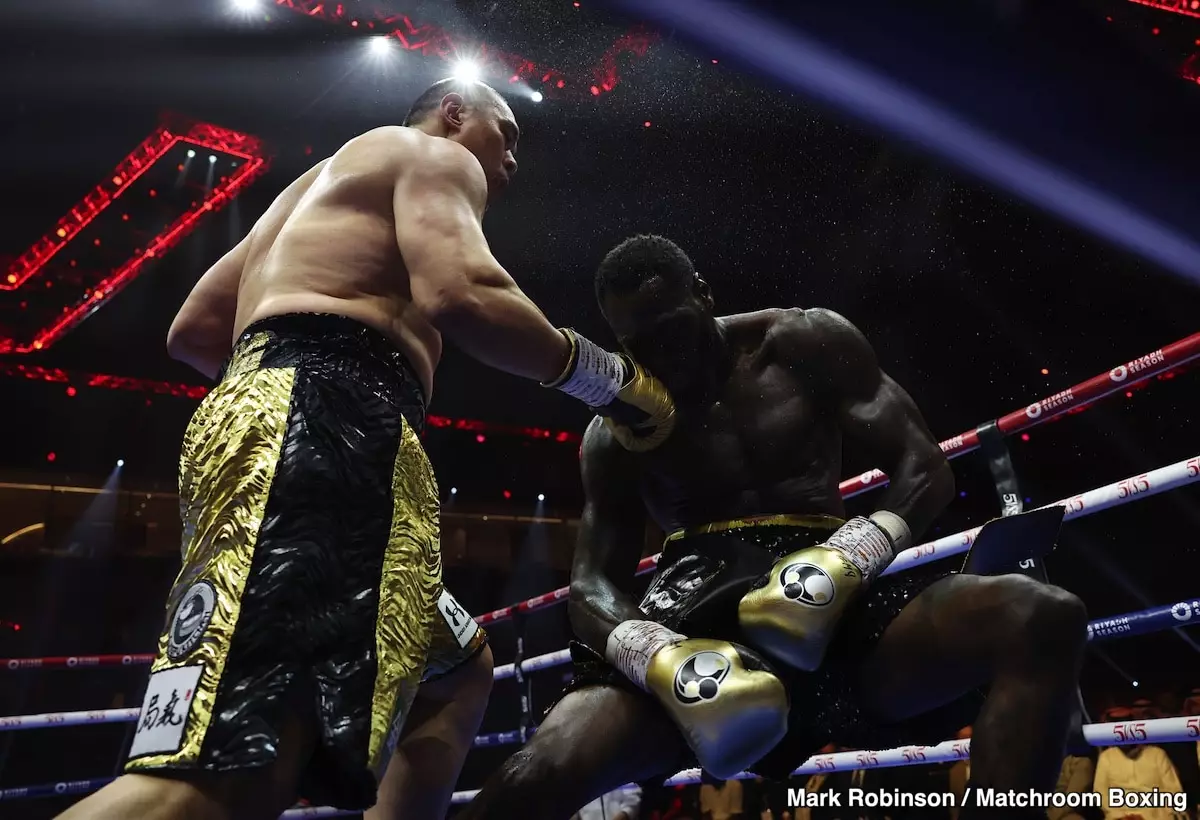Deontay Wilder, once revered as a powerhouse in the heavyweight boxing division, now finds himself at a pivotal juncture in his career. The former WBC heavyweight champion holds an official record of 43 wins, 4 losses, and 1 draw, with a staggering 42 of those victories coming by knockout. However, in recent years, Wilder’s former glory has dimmed, having suffered two consecutive defeats and claiming just one win in his last five bouts. As his next fight in 2025 looms ever closer, the stakes could not be higher. Malik Scott, Wilder’s current trainer, suggests that Wilder’s future in boxing could hinge on the outcome of this upcoming bout.
One of the most intriguing aspects of Wilder’s decline could be attributed to the waning of his competitive spirit—a decline that has been speculated to correlate with his financial success. With an estimated net worth of around $30 million, questions have arisen about whether the motivation that once drove Wilder—his unyielding hunger to succeed and dominate—is still present. Malik Scott identifies this lack of desire as a critical factor contributing to Wilder’s recent performance issues. The luxurious lifestyle that comes with wealth may have dulled the edge that once made him one of the most feared fighters in the ring.
Style Over Substance: Misguided Changes?
Another layer of complexity in Deontay Wilder’s situation is the shift in his fighting style under Malik Scott’s tutelage. Fans and analysts alike have voiced concerns regarding Scott’s changes to Wilder’s traditionally explosive slugging approach. Many argue that this stylistic transition has hindered Wilder’s ability to perform at the levels he is capable of achieving. Since displacing his long-time coach Mark Breland with Scott in 2021, Wilder’s record reads an alarming 1-3. This begs the question: Has Wilder lost his identity as a fighter?
The bout against Zhilei Zhang ended in a TKO loss in five rounds, and his most recent fight against Joseph Parker resulted in a unanimous decision loss, a stark departure from Wilder’s knockout-heavy past. Observers noted Wilder’s reluctance to engage and a tendency to circle his opponents without throwing significant punches—something that runs counter to his well-known strategy of looking for the knockout.
As he gears up for his next challenge, the pressure on Wilder intensifies, both from a performance perspective and from public scrutiny. Malik Scott states that everything is on the line for Wilder in 2025, a sentiment echoed by fans who have grown frustrated with what they perceive as subpar performances. Their discontent has led to discussions about whether Wilder should reconsider his training choices, including reuniting with Breland or possibly seeking alternative coaching strategies.
Many ardent followers of the sport are left to ponder whether Wilder’s recent losses stem from poor coaching decisions, a lack of adaptability in changing his style, or a combination of both. The relentless grind and pressure of training may not be enough to revitalize the fierce competitor who once held the crown in the heavyweight division.
A Shifting Landscape in Heavyweight Boxing
Looking ahead, the heavyweight boxing division looms with talent eager to seize opportunities, leaving no room for sentiment or nostalgia. As other fighters rise and the evolution of styles continues, Wilder must quickly adapt or risk being left behind in a sport that is constantly moving forward. Malik Scott’s assertion that 2025 will be a crucial determinant of Wilder’s career is undoubtedly true. However, it remains to be seen whether Wilder will rise to the occasion or allow this chapter of his life to conclude in disappointment. The world will be watching closely as the quest for redemption unfolds.

